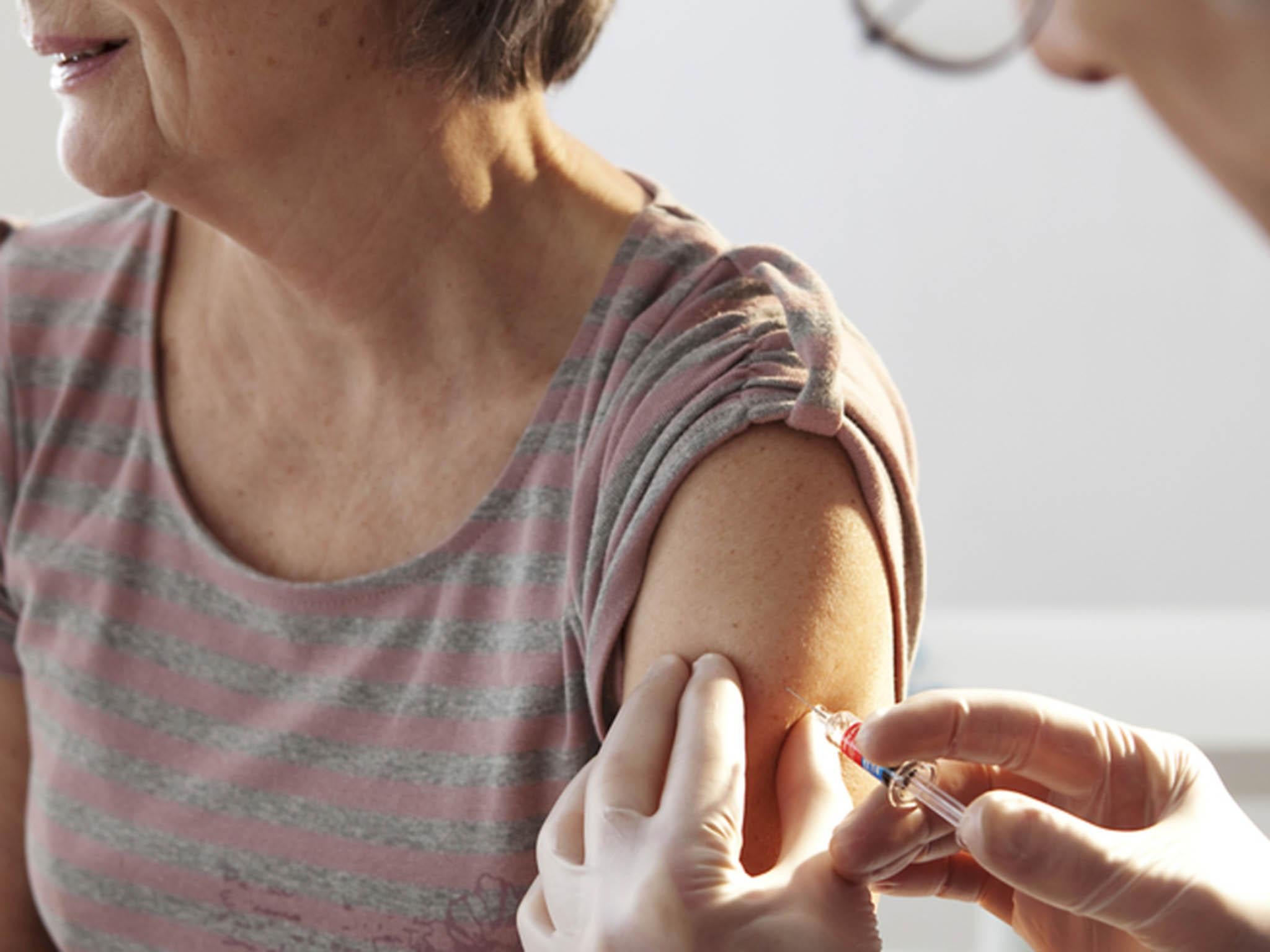Cholesterol-lowering jab could help prevent heart attacks
Promising early research shows the injection can direct immune system to lower cholesterol

A new vaccination that prevents heart attacks and could provide an effective alternative to statins is being developed by Austrian scientists.
Promising early research has shown the injection can direct the immune system to lower cholesterol – and if given yearly to at-risk patients, may help keep arteries clear and reduce the risk of heart disease.
Patients have been enrolled into an early-stage clinical trial to see if the approach, so far tested on mice, will work in humans.
The vaccine, known as AT04A, triggers the production of antibodies that target an enzyme involved in regulating levels of blood cholesterol.
This enzyme has been shown to impede the clearance of low-density lipoprotein – the “bad” form of cholesterol that is largely to blame for blocked arteries – from the blood.
Mice fed an unhealthy Western-style fatty diet had their total blood cholesterol lowered by 53 per cent by the vaccine, according to a new study published in the European Heart Journal.
Atherosclerotic damage, the build-up of hard fibrous deposits on the walls of arteries, was reduced by 64 per cent and biological markers of blood vessel inflammation by up to 28 per cent compared with unvaccinated mice.

Dr Gunther Staffler, chief technology officer at the Austrian biotech company AFFiRis, which developed the vaccine, indicated people who currently take statins, the most commonly-prescribed medicines in the UK, could benefit from a yearly booster jab instead.
“If these findings translate successfully into humans, this could mean that, as the induced antibodies persist for months after a vaccination, we could develop a long-lasting therapy that, after the first vaccination, just needs an annual booster,” he said.
“This would result in an effective and more convenient treatment for patients, as well as higher patient compliance.”
Doctors have warned that fears over non-existent side effects of statins are causing thousands of deaths from heart attacks and strokes as patients needlessly avoid the cholesterol-lowering drugs.
The enzyme targeted by the drugs is called PCSK9. It is made in the liver and blocks receptor molecules on cells that allow the body to get rid of harmful cholesterol.
The vaccine causes the body to produce antibodies that lock onto and immobilise the enzyme, so that the receptors can remain active.
Essentially it is an immunotherapy treatment. Unlike a conventional vaccine that targets foreign invaders such as bacteria and viruses, AT04A marshals the immune system to attack one of the body's own proteins.
A Phase I trial testing the safety and activity of the vaccine in 72 healthy patients was launched at the Medical University of Vienna in 2015. The trial is due to finish at the end of this year.
However, before the vaccine can be licensed and rolled out to patients, larger scale trials focusing on effectiveness as well as safety will have to be carried out.
British expert Dr Tim Chico, reader in cardiovascular medicine at the University of Sheffield, said: “If similar effects were achieved in humans it would be likely to lead to a reduction in heart attacks.
”This was a well-conducted but very early study, using animals not humans, and many questions remain about whether this approach could work in man.
“The theory is sound and I think this might have the potential to replace the need to take regular cholesterol-lowering drugs.“
He added that it may take ”many years“ to be certain about the long-term safety of the vaccine, which unlike a drug could produce permanent side effects.
Dr Chico said: ”This is yet more proof that cholesterol causes heart disease, and lowering cholesterol reduces risk of heart disease, so it confirms the importance of a healthy lifestyle for everyone and medications such as statins for some people to reduce risk of heart disease.“
One potential safety concern associated with targeting PCSK9 to reduce cholesterol is increasing the risk of diabetes, experts believe.
Professor Sir Nilesh Samani, medical director at the British Heart Foundation, said: ”Having high cholesterol can put you at significantly higher risk of a potentially life-threatening heart attack or stroke. Finding new ways to manage people's cholesterol levels is absolutely vital.
“Although only tested in mice, this vaccine could lead to a simple way to target high cholesterol and ultimately reduce people's risk of heart disease.
“More research is needed to show that the vaccine is an effective and safe treatment for patients. In the meantime, the best way to reduce your cholesterol is to quit smoking, eat a healthy balanced diet and take any prescribed medicine such as statins as recommended by your GP.”
Additional reporting from Press Association
Join our commenting forum
Join thought-provoking conversations, follow other Independent readers and see their replies
Comments
Bookmark popover
Removed from bookmarks